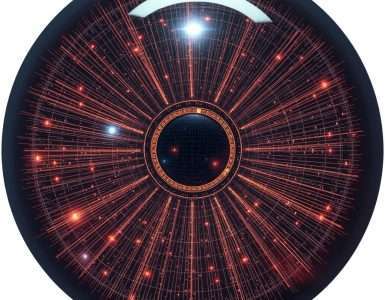Remember those wild sci-fi flicks from your childhood? Flying cars, robots doing our chores, virtual reality so immersive you couldn’t tell the difference from real life? For a long time, it felt like pure fantasy. But guess what? We’re starting to catch up. A lot of what once seemed like science fiction is now edging into science fact, and the pace of change is accelerating.
Let’s ditch the flying cars for a moment (though there’s progress there, too!). Let’s talk about the everyday creeping-in of the future. Take AI, for example. It’s not the sentient, world-dominating AI from Terminator, at least not yet. But AI is already deeply woven into our lives. From the algorithms curating your social media feed (creepy, I know) to the voice assistants in our phones, AI is subtly (and sometimes not-so-subtly) shaping our experiences.
This AI revolution is just getting started. We’re seeing AI advancements in healthcare, diagnosing diseases with greater accuracy and speed than ever before. Self-driving cars – another sci-fi staple – are slowly but surely entering the mainstream, poised to revolutionize transportation and potentially eliminate millions of accidents each year. While still imperfect, the technology behind autonomous vehicles showcases the power of blending AI, computer vision, and sensor technology. What If We Could Upload Our Consciousness to a Computer?
Then there’s the metaverse, which sounds like something straight out of *Ready Player One*. This isn’t just about gaming; it’s about creating immersive digital environments for work, socializing, and even shopping. Imagine attending a virtual conference from the comfort of your home, feeling like you’re actually in the room with others – that’s the promise of the metaverse. While still in its early stages, advancements in VR and AR technologies are paving the way for more realistic and engaging metaverse experiences.
Biotechnology is also making huge strides. We’re not quite at the level of genetic engineering depicted in *Gattaca*, but CRISPR technology allows us to edit genes with unprecedented precision, opening doors to treating genetic diseases and potentially even enhancing human capabilities. This raises ethical questions, of course, but the potential for good is undeniable. Imagine a future where we can cure diseases that have plagued humanity for centuries – that’s not fantasy anymore, it’s becoming a reality thanks to advancements in biotechnology.
But what about the more outlandish predictions? Space colonization, for example, seemed like a distant dream decades ago. Now, companies like SpaceX are making significant strides in developing reusable rockets and creating infrastructure for space travel. While a Martian colony is still a way off, the goal is no longer considered absurd. We are getting closer to establishing a sustainable presence beyond Earth, one small step at a time, and technological developments in propulsion systems, resource utilization, and life support are pushing the boundaries of space exploration.
And what about the energy crisis? Sci-fi often portrayed futuristic societies powered by clean, limitless energy sources. While we haven’t cracked fusion power just yet, renewable energy technologies – solar, wind, geothermal – are rapidly improving and becoming more affordable. Battery technology is also undergoing a revolution, making electric vehicles more practical and extending the range of portable devices. The dream of a sustainable energy future is no longer a pipe dream – it’s a tangible goal within reach.
It’s essential to acknowledge the potential downsides. With every leap forward, there are potential pitfalls. AI bias, job displacement due to automation, and the ethical considerations of gene editing are just a few of the challenges we need to address as we navigate this rapidly evolving technological landscape. Responsible development and regulation are critical to ensure that these advancements serve humanity, rather than the other way around.
So, where does this leave us? In a world where the line between science fiction and reality is blurring more every day. The future isn’t a single, predetermined destination; it’s a constantly evolving canvas painted with the brushstrokes of technological innovation. The sci-fi stories we once dismissed as fantasy are now serving as blueprints for the future we are actively creating. As these technologies continue to mature and merge, it will be fascinating (and perhaps a little unsettling) to see how the next chapter unfolds. The future isn’t just arriving – it’s already here, in its nascent form, quietly disrupting, and fundamentally reshaping our world. Buckle up, because the ride’s just begun.

























Add comment